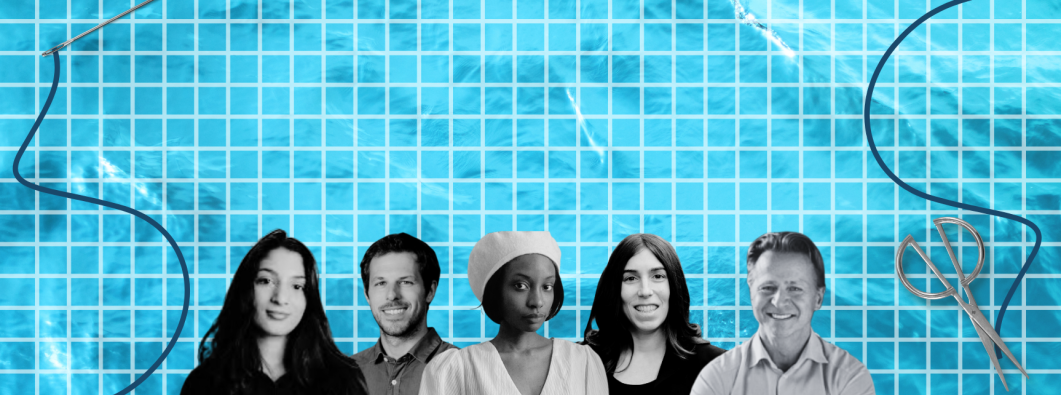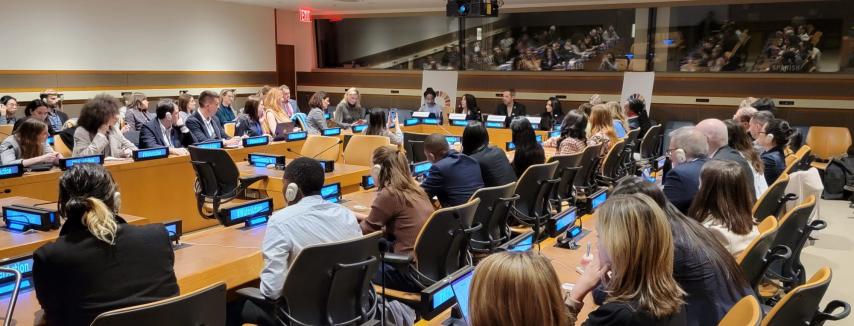
Fashion industry innovations leading transformative action for Sustainable Development Goal 6: Clean water and sanitation
On 22 March 2023 the United Nations Office for Partnerships, in collaboration with the Fashion Impact Fund, hosted a panel discussion during the United Nations Water Conference on the impact of the fashion industry on water.
The United Nations Water Conference is co-hosted by Tajikistan and the Netherlands. The vision for the conference was to raise awareness on the value of water, push for better water management, and to call for action to achieve the internationally agreed water-related goals and targets.
The fashion Industry is the world's second largest water consumer, next to the agricultural industry, and the world's largest microplastic polluter. It is crucial to discuss how industry stakeholders plan on combating these issues.
“Microplastic pollution is a huge problem, and the fashion industry contributes to about 35% of this pollution. Not only does this pollution affect marine life, microplastics have been found in our brains and lungs for the first time.” - Aradhita Parasrampuria

The panel included industry stakeholders and leading philanthropic actors, namely: Patrik Lundström, CEO of Renewcell, Clemens Scheiber, Head of Swarovski Waterschool, Aradhita Parasrampuria, Materials Designer and Swarovski Foundation Creatives For Our Future Cohort Member, and Stephanie Benedetto, Co-Founder and CEO at Queen of Raw.
The panelists discussed the role of circularity in the future of sustainable fashion and in achieving SDG 6. Furthermore, they looked at education on water stewardship, and how it will allow young generations to fully appreciate water and its importance. Clemens Scheiber shared his experiences through the Swarovski Water School, where he has witnessed children shifting their behavior towards water after learning about the value of water.
“This new generation is coming up with new behaviours and will hopefully change things for the better.” - Clemens Scheiber.
The panel focussed on how the fashion sector applies innovation and technology for efficient water management. Experts discussed the topic on a variety of methods. Aradhita Parasrampuria, for example, has created biodegradable embellishments, which can biodegrade 100% within two weeks in a home compost. This material is made out of a jellyfish protein which allows it to transform according to the environment. Araditha hopes this leads to consumers seeing materials as organisms, not just disposable objects.
The panelists discussed challenges regarding the change towards sustainability, such as lack of government-level efforts and biases towards sustainable materials. The CEO of Renewcell Patrik Lundström shared that, “We need to recognize that the whole change towards sustainability is here to stay and it's a fantastic business opportunity,” encouraging industry stakeholders to take the opportunity of becoming sustainable.
Industry pioneer Stephanie Benedetto has used sustainability to her advantage and created a highly sustainable and successful business. By buying excess inventory from warehouses and incorporating it back into the industry, she has saved over 1 billion gallons of water.
“We have to come up with an action plan, and now take action and change the world.” - Stephanie Benedetto.
With the efforts of pioneers like these, and the awareness and actions of the younger generations, we can hope for a future where sustainable fashion is the norm and our relationships with water and materials are respectful and responsible.
“Fashion is our second skin, we want to dress in Sustainable Clothes” - Patrik Lundström
You can watch the full panel conversation at the link below:



